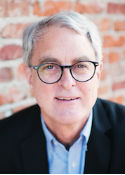Americans are some of the most spiritually minded people on the planet. However, a new study from The Barna Group shows that as Americans rethink their lifestyles and priorities, many also consider themselves to be socially conscious and living “simple” lives, often more so than embracing common “spiritual” labels.
Beyond Spirituality
The nation’s population has always possessed an appetite for active spirituality. This streak continues to shape the thinking of millions of Americans, who describe their religious faith as personally very important (71%). Two-thirds of the nation’s adults think of themselves as “deeply spiritual” (64%). All of this focus on spiritual matters seems to provide people with a confident self-assessment: 82% of adults describe themselves as “spiritually mature.”
Yet, in addition to spiritual identities—and in some ways beyond spiritual labels—Americans also think of themselves as difference-makers and concerned about the world around them. In all, three out of every four adults say they are “making a positive difference in the world” (78%). In fact, close to nine out of every ten Americans (86%) describe themselves as “caring deeply about social injustice.” A similar percentage of adults are “concerned about the moral condition of the country” (86%).
Searching Continues
While most Americans want clarity about their life’s purpose, they portray a personal search that is challenging and often conflicted. At times Americans put a positive face on their reason for being; other times they admit to not living up to their ideals. For instance, while 71% of adults believe they are “fulfilling their calling in life,” 51% also say they are “searching for meaning and purpose.”
Another conflicted self-assessment shows up when asked to describe their sense of peace and simplicity in life. Most Americans feel “very much at peace with life” (84%) and the vast majority say they “live a simple life” (84%).
However, most Americans also acknowledge they need to make major life changes. For example, most adults reject the statement “you would not change anything significant about your life” (55%). Also, their sense of peace and simplicity is often thwarted by their strong desire to make more money and do more in life: seven out of ten Americans say they are “totally committed to getting ahead in life” (68%).
Gaps and Overlap
How does the Christian community compare on these self-perceptions? In many ways, the self-perceptions of born again Christians are remarkably similar to those of Americans who are not born again. Not surprisingly, the largest gaps showed up related to spiritual self-perceptions. For instance, born again Christians were much more likely to describe themselves as deeply spiritual, to desire a close relationship with God, and to prioritize their faith when compared with other non-born again Christians.
Yet, on social awareness, matters of lifestyle, and the desire for simplicity, the self-identities of born agains and others were very similar. Only two of the non-spiritual self-perceptions showed any difference, and those gaps were minimal: born again Christians were slightly more likely than others to see themselves as making a positive difference in the world (83% versus 74%, respectively) and slightly more likely to be fulfilling personal life calling (76% to 67%).
All rights reserved. Used by permission.
A native New Yorker, George Barna has filled executive roles in politics, marketing, advertising, media, research and ministry. He founded the Barna Research Group (now The Barna Group) in 1984 and helped it become a leading marketing research firm focused on the intersection of faith and culture. The company has served several hundred parachurch ministries and thousands of Christian churches throughout the country. It has also supplied research to numerous corporations and non-profit organizations, as well as to the U.S. Navy and U.S. Army.
To date, Barna has written 48 books, mostly addressing leadership, trends, church health and spiritual development. They include best-sellers such as Revolution, Transforming Children into Spiritual Champions, The Frog in the Kettle, and The Power of Vision. His most recent book is Revolutionary Parenting. Several of his books have received national awards. He has had more than 100 articles published in periodicals and writes a bi-weekly research report (The Barna Update) accessed by more than a million people each year, through his firm’s website (www.barna.org). His work is frequently cited as an authoritative source by the media. He has been hailed as "the most quoted person in the Christian Church today" and has been named by various media as one of the nation’s most influential Christian leaders.
He is a popular speaker at ministry conferences around the world and has taught at Pepperdine and Biola Universities and several seminaries. Barna served as a pastor of a large, multi-ethnic church and has been involved in several church start-ups.
After graduating summa cum laude from Boston College, Barna earned two Master's degrees from Rutgers University. At Rutgers, he was awarded the Eagleton Fellowship. He also received a doctorate from Dallas Baptist University. He lives with his wife (Nancy) and their three daughters (Samantha, Corban, Christine) in southern California. He enjoys reading novels, watching movies, playing guitar, and relaxing on the beach.





